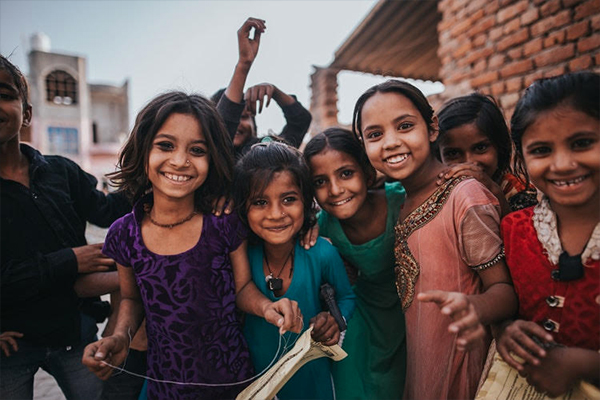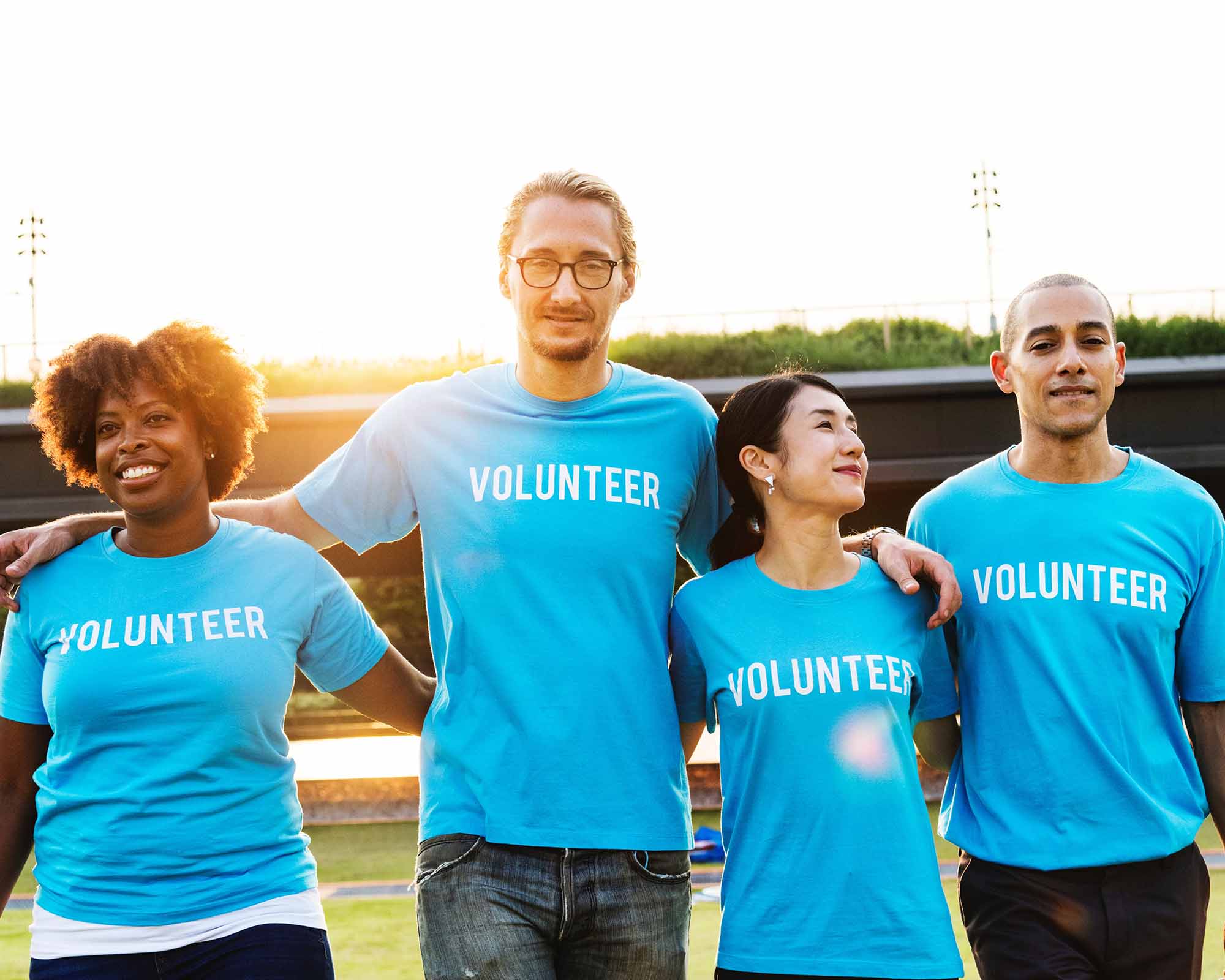Volunteering Overseas can be an immensely rewarding experience, but a lack of oversight and regulation in some places means you can end up doing more harm than good. We speak to charity CEO Andrea Nave on the lessons she’s learned through her organisation’s work with Nepalese children and what we can do to ensure our good intentions are put to good use.
Andrea Nave is the CEO of Australian charity Forget Me Not, an organisation that set out to help orphaned children in Nepal. Forget Me Not opened its doors in Nepal in 2006, taking care of six orphaned children with others soon joining them. But in 2011 the NGO’s Nepal Director made a disturbing discovery that would change Forget Me Not’s mission forever. The children in its care did have families. They were ‘paper’ orphans, who had been trafficked using forged documents. From that day on, Forget Me Not moved away from providing shelter and began a program to reconnect trafficked children with their loved ones.
Forget Me Not now works within Nepal, India and Uganda reuniting children with their families, whenever it is in the best interests of the child to do so.
Thanks for your time Andrea. Good On You readers want to make a positive difference in the world and many would think about volunteering overseas. What advice would you give to people to ensure their volunteering doesn’t support child trafficking or create other problems?
For voluntourists the first rule of thumb always is – unless you are a trained professional with child protection features in your skill base, do not volunteer with children. They are not a tourist attraction and they are not there for you to go there for two-to-three weeks, two-to-three days, two-to-three hours.
You’re best not to participate with vulnerable children at all, full stop, unless it is a long-term placement based on your skill set and that is very rare. In countries like Uganda, Nepal and India, where we do our work, there are enough professionals in the country that are culturally appropriate to work with the children in need. They do not need volunteers coming in and out of their lives, bringing cross-cultural concepts and changing mindsets that don’t need to be changed. So first rule of thumb is don’t volunteer with children, they are not a tourist attraction and they actually don’t need your support in that regard.
I think secondly when it comes to other things like house building or bridge building or painting – again ask yourself, am I taking away a job that I could have supported with the funds that I’ve used to come here? Am I taking away a job from a local that is looking to survive in the building industry, that’s looking to survive as a painter? These are true and deep ethical questions that voluntourism must address. We all have skills that we can share but when we remove an opportunity locally, that’s detrimental.
This includes taking large amounts of product into a place from a country like Australia. For example, when you take up 200 shoes in a container to the local village, all you’re doing is decimating the shoe industry, despite best intentions. That is not helpful. Your best bet is to take those funds and buy everything that you’re about to donate locally. Don’t collect stuff, collect money and give it ethically through an appropriate and transparent channel.
A lot of people may not realise it’s detrimental to, for example, send over a shoe box care package to a developing country. There seems to be a lack of understanding about what is needed as opposed to what is thought is needed.
The intention is good, the intention is always good with people volunteering overseas in orphanages, or sending care packages. All those things have great intentions and we don’t want to damage that.
How we put this intention into action is an important question to consider to ensure we are helping in a positive and effective way. Avoiding volunteering overseas in illegitimate orphanages, and instead supporting the local economy by funding local jobs and infrastructure are ethical pathways we can take to ensure our help is received in the way we intend it to be.
So your advice on how to interact with a culture to ensure that it is beneficial would be to actually visit the culture firsthand and support the local economy?
Absolutely, you’ve nailed it in one sentence. Support the local economy, buy locally, buy it there. Whatever it takes, make sure that it’s local and it’s implemented locally. Don’t give wads of cash to someone and expect your good intentions are going to the beneficiaries. Choose ethical pathways I think is the answer.
Does Forget Me Not engage local volunteers to work with children? For example are you using local Nepalese people in Nepal to ensure there is not a cultural clash?
All of our teams across the world are all local. They are all local nationals everywhere. When we visit, we are purely there in an observational capacity to make sure that the beneficiaries are in fact benefiting from all of our work. We do not participate. And we help build a project based on need – as opposed to what our want is. We work from the bottom up so we don’t get a situation where we think someone might need grass and what they actually need is rice.
The original mission of Forget Me Not was to establish an orphanage but it’s evolved into reuniting children with their families. Tell me about this journey?
The realisation that we were in fact implicit in keeping children from their families was hard to take. Unknowingly, we had kept children institutionalised, despite how good our institution was. We found families that had missed their children and who had been looking for them for years. These kids had been with us with false names and parental death certificates. Once we learned the truth about the children we made a decision to confront the findings head-on, in the best interests of the children. We promised to find their families and get them home. We looked for an expert Nepali non-government organisation specialising on reintegration and fought to have the 20 girls in our care transferred to this organisation. After 18 months of searching we had located all of the girls’ families and they began their journey home after eight years of separation.

What are the organisations most important values and have these changed from any original values?
Our values have never changed since establishment in 2005 – to stand for children. We also hold closely the notion of when we know better, we will do better.
How have you managed helping vulnerable children, whilst fundraising in an ethical and non-intrusive way?
We explain how their funds are having a real impact and changing lives. We tell those stories honestly, authentically and we include the challenges that we meet. If this was easy, everyone would be doing it and the problems would be solved. We’re very clear about what we hope to achieve, why we need their support to try and then we really reflect on what we could have done better, what we learned along the way and what we’ll do next time. So we try to steep our fundraising and sustainability funding in real stories and we find that that gives us the most ethical and real connection to people who are looking to fund.
Tell us about your India project HELP framework. Is it a good model for people to use looking to help children in need in an ethical and effective way?
Project HELP is quite a unique framework. It was developed from very vulnerable communities directly, identifying categories of need; health, education, livelihood and other possibilities – which is H-E-L-P – and we then work to develop innovative kind of approaches that are cost effective. For example, we don’t pay child fees to go to school, we don’t pay child sponsorship. Instead, we fund teachers and teachers teach large cohorts of children and that is a better and more effective way for children to learn rather than only one, or three children from this family and none from that. That’s outrageous. That really does not work at all.
Our model has actually had awards in India as a replicable solution for other vulnerable communities and the government is looking very closely at the outcomes of our work there. It is developed with a framework of need as opposed to a framework from a Western perspective of what we think may be required.
What would you say is one of the most important lessons you’ve learned along the way from your involvement with Forget Me Not?
In a word, listen. Truly listen. Ask lots of questions and listen. I think the strength of Forget Me Not is having been able to learn as we grow, to really learn and based on what you learn, act on that. So I think listen, learn, act are our three big keys here.




















